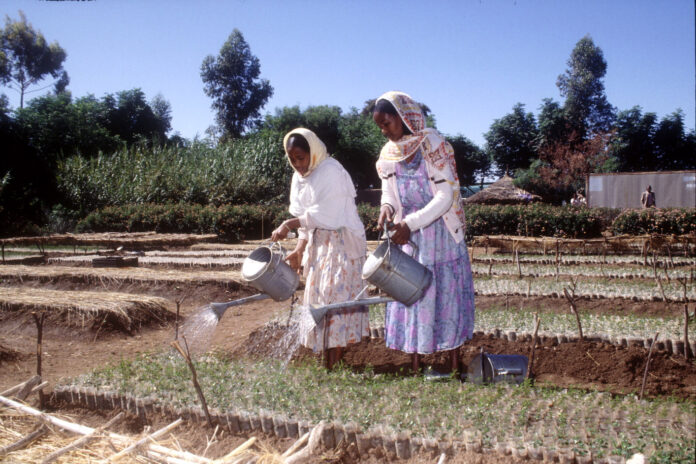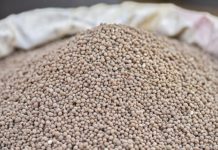The Food and Agriculture Organization of the United Nations (FAO), the Ministry of Land, Water and Environment (MoLWE) of the Government of the State of Eritrea and the Global Environment Facility (GEF) launched a new project, with an overall budget of USD 15.86 million, to pave the way for a more prosperous and climate-resilient future for Eritrea.
The project, titled: “Building Community Based Integrated and Climate Resilient Natural Resources Management and Enhancing Sustainable Livelihood in the South-Eastern Escarpments and Adjacent Coastal Areas of Eritrea,” aims to improve the food and nutrition security and livelihoods of vulnerable rural communities through enhanced agricultural and fishery production, natural resources management, agro-processing, and trade. Major interventions would include scaling up climate change adaptation technologies, fostering market access, transferring knowledge, and sharing best practices.
Implemented by the Ministry of Land, Water, and Environment (MoLWE) of the Government of the State of Eritrea with support from FAO Eritrea, the project is funded by the Global Environmental Facility (GEF).
At the launching event held in Asmara, H.E. Tesfai Ghebreselassie, Minister of the Ministry of Land, Water, and Environment (MoLWE), emphasized the multitude of environmental challenges faced by rural Eritrea. The degradation of land, water, and forest resources has become a norm, driven by unsustainable agricultural practices, overexploitation of forestry and rangeland resources, and inadequate livestock management practices. Considering these pressing issues, the Minister noted that this project assumes great significance as it aims to assist targeted communities in effectively adapting to the ongoing challenges posed by climate change. The Government remains committed to establishing model areas that can be replicated through the utilization of alternative resources and active community participation. The Government of the State of Eritrea, with a special mention of the MoLWE, is firmly committed to providing the necessary support to ensure the successful implementation of this project and to address the environmental and food security concerns faced by rural communities.
“As climate change advances, the precarious situation becomes increasingly tenuous for humans, biodiversity, and the ecosystems upon which they depend. This project will help to address the identified challenges in an integrated manner and at a scale designed to deliver meaningful results,” said the Minister.
Mohamed Aw-Dahir, Senior Partnership Officer at FAO Eastern Africa and Office in Charge of FAO Representation in Eritrea stressed that the commencement of the project signified the shared commitment of FAO, the Government of the State of Eritrea and the GEF to build resilient communities and promote sustainable livelihoods in Eritrea.
“Today, as we launch this transformative endeavour, we set forth on a path that will shape the future of the targeted communities and contribute to the sustainable development of Eritrea as a whole. With a focus on ecosystem-based approaches, adaptation technologies, monitoring and evaluation, and knowledge transfer, we aim to create a lasting impact and sustainable change,” he said.
Agricultural context in Eritrea
Eritrea is among the developing countries, where approximately 70 per cent of the population lives in rural areas and relies on rainfed farming, livestock, and fisheries. Despite huge agricultural potential, Eritrea’s rural economy is subsistence, with extremely low agricultural productivity. This is partly due to high levels of land degradation and climate-related shocks.
The agriculture sector in the country is dominated by rainfed farming with only 10 percent of all agricultural land under irrigation. The principal crops in Eritrea include sorghum, pearl millet, maize, wheat, barley, chickpea, grass pea, lentil and field pea, sesame, groundnut, flax and sunflower.
Fisheries are important for coastal communities. Most fishing is, however, for semi-subsistence and only limited commercial sales due to dearth of fishing fleets, landings, processing facilities as well as preservation infrastructures.
The newly launched project is intended to strengthen the enabling environment, where national and Zoba level policies will be harmonized and streamlined to better deliver climate resilience and sustainable land management benefits, including the establishment of a new forest protected area. Revitalizing the extension services and associated field trainings, the project will create an effective and lasting programme for knowledge and capacity building. Ultimately, such practices will assist rural communities to improve their ability to expand production opportunities to improve livelihoods, reduce climate change vulnerabilities, and engage in pro-conservation production practices.









